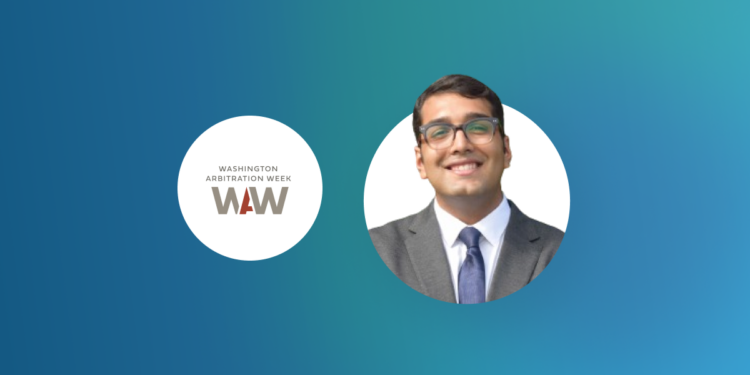Discourse on the Interplay Between Arbitration and Litigation
THE AUTHOR:
Faiz Afsar Sait, LLM Candidate at the Georgetown University Law Centre
The inaugural panel of the 2023 Washington Arbitration Week’s (WAW) opening day, “Judges vs. Arbitrators? Assessment of International Arbitration Awards by the Judiciary After Nigeria v. P&ID”, began with a dynamic discourse on the interplay between arbitration and litigation. The discussion proceeded in light of the recent English Court ruling upholding Nigeria’s challenge to the US$11 billion award in Federal Republic of Nigeria v. Process & Industrial Developments Limited on the basis of, inter alia, corruption.
The panel was moderated by Nicole Silvers (Validity Finance), with insights shared by esteemed speakers including Judge Eduardo C. Robreno (McCarter & English), Michael Evan Jaffe (Pillsbury Winthrop Shaw Pittman), and Matthew H. Kirtland (Norton Rose Fulbright).
Michael Evan Jaffe sought to examine the judiciary’s assessment of arbitral awards through the lens of responsibility on the part of counsel, where conspicuous red flags might exist either in the underlying contract or surrounding circumstances. Whether the proceeding is investor-state or commercial in nature, there is a fundamental duty cast upon counsel to ask the right questions and provide such questions, if not information, to the tribunal. Analogous to how proceedings are inquired into in the United States, since the arbitration proceedings themselves are not corrupt, an adequate starting point is whether the issues of bribery and corruption fall outside the scope of arbitration. From the perspective of the tribunal, when investor-state disputes are examined in places with a high propensity for corruption, the arbitrators themselves must be circumspect and look into allegations of corruption and fraud.
Judge Eduardo C. Robreno delved into the issue by questioning whether the international arbitration framework needs to be modified as a result of this case. He answered this question in the negative, asserting that there would be little consequence beyond the facts of the case. Pertinently, he drew a parallel with the balance between judges and arbitrators in the United States, highlighting that the existing balance between judges, vested with power constitutionally, and arbitrators, vested with power pursuant to the agreement between private parties, manifests through three modes of interaction. First, in deciding whether the arbitration should take place. Second, in terms of assistance in compelling witness testimony or documents. Third, in the enforcement and recognition of the award. Despite his conclusion that the arbitration framework does not need to be fundamentally changed, he noted that the Nigeria case, if anything, calls for increased circumspection in dispute resolution in places where corruption is rampant.
Matthew H. Kirtland noted that the case of Nigeria illustrates a ‘hole’ in the system of international arbitration, representing both procedural and evidentiary imbalances. First, he recalled that the fraud in question went undisclosed by counsel, and, ordinarily, when an award tainted by fraud is brought before courts of various countries, courts interact with the case on the premise that the party or tribunal had the opportunity to inquire into the fraud. However, as this case highlights, such a premise is incorrect. Given the limited role of discovery in international arbitration, the fallacy of this premise is exacerbated. Second, on the imbalance of procedural laws, Mr. Kirtland stated that the choice of seat determines the role the judges play in setting aside proceedings. Two layers of argument are instructive in this context:
- London has one of the strongest anti-fraud laws in the world; if Nigeria’s case were to be presented in another jurisdiction, the same result may not have ensued; and
- The English judiciary operates with heightened ‘duty of inquiry’ emanating from the common law tradition which influences the manner in which courts review calls for setting aside arbitral awards. However, such influences are seat-specific and would not avail in other jurisdictions. On this point, he stressed that tribunals in public disputes such as in the present dispute have a positive and affirmative duty to inquire, especially where the dispute involves significant public interest. Furthermore, this case illustrates the necessity of development of the principles of transparency, the duties of the tribunal, and affirmative duty on the part of the counsel.
Conclusion
The presence of instances of fraud and corruption renders an award contrary to public policy. As a corollary, an award obtained by fraud, contrary to public policy, is likely to cause substantial injustice. Such a result is not what parties agreed to when they agreed to arbitrate the dispute. Apart from consequences to the parties brought upon by the presence of these factors, the case illustrates an existential threat to the investor-state dispute settlement mechanism and the reputation of arbitration as a dispute resolution process. In mapping the road to reform, if any, it is necessary to bear in mind the nature of the dispute and the manner in which transparency, and affirmative duty on the part of counsel and tribunal, reconcile with the elected dispute resolution mechanism.
ABOUT THE AUTHOR:
Faiz Afsar Sait is an Indian-qualified lawyer with two years of experience navigating the interplay between commercial arbitration and litigation. Before enrolling at Georgetown University Law Center for his LLM in International Legal Studies, Faiz served as a Judicial Law Clerk at the High Court of Karnataka, India. In this role, he extensively worked with Single and Multi-Member Panels of Judges on arbitration, complex commercial, construction, and constitutional disputes.






